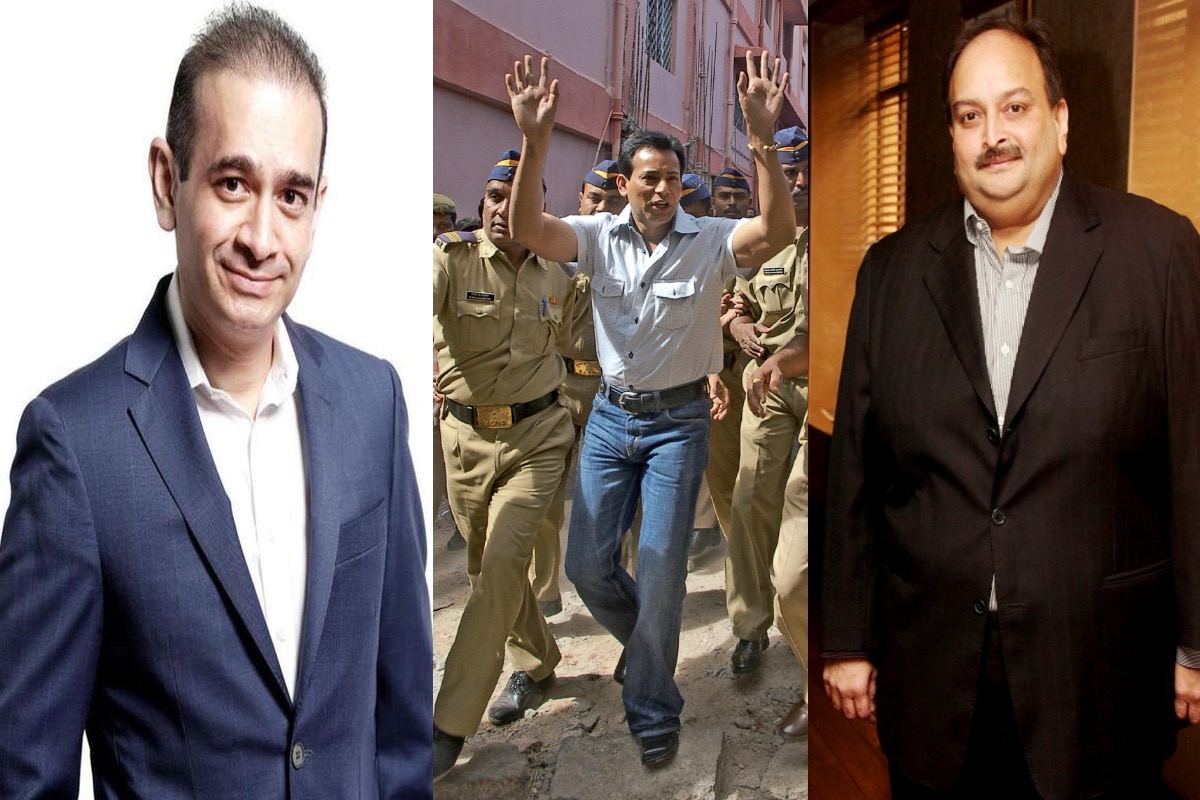Even as Prime Minister Narendra Modi is all set to address the 90th Interpol General Assembly session – being held in India after a gap of around 25 years – on Tuesday afternoon, India’s premier central investigative agency the Central Bureau of Investigation (CBI) and the financial probe agency the Enforcement Directorate (ED) had long association with the international police headquarters in France’s Lyon.
The CBI and the ED had approached the Interpol to bring back several fugitive economic offenders such as businessmen Nirav Modi, Mehul Choksi and Vijay Mallya, who are living abroad, thus putting the spotlight on the international organisation.
India was also able to extradite Abu Salem from Portugal after his arrest with the help of Interpol.
Interpol is the shorter and better known name of the International Criminal Police Organization, a network comprising 192 member nations, including India. India became its member in 1956.
CBI is the nodal agency for the Interpol in India and all the agencies or state police have to make a request to the CBI for the issuance of any notices for the accused who are residing or taking shelter in foreign countries.
The Interpol has helped India in several high profile cases like that of Nirav Modi and Mehul Choksi, where it helped the Indian agencies to track down the fugitives in foreign land.
After Nirav Modi and Mehul Choksi were tracked down in England and Antigua respectively, the red corner notices issued by the Interpol against them made their travel or escape from there almost impossible as all the airports and other countries were warned about the warrants and their crimes in India.
Even in case of underworld gangster Salem wanted in Mumbai serual bomb blast case, a designated TADA court in Mumbai declared him a proclaimed offender on October 15, 1993.
Later, a non-bailable warrant was issued against him. The Interpol also issued a Red Corner notice for his arrest on September 18, 2002.
And soon he was extradited India from Portugal in November 2005.
The source said that Interpol connects police across the world even if these individual member nations do not have diplomatic relations.
The Interpol facilitates information exchange, knowledge sharing and research between nations.
This is done by issuing colour-coded ‘notices’.
The Interpol doesn’t have law enforcement powers such as arrest. When a member nation approaches it with a specific request backed with court orders, the Interpol sends it out to other countries. The information received is sent back to the country.
Earlier this year, the central probe agency approached the Interpol to issue Blue Notice to ascertain the whereabouts of the two suspects — C Prabhakar Reddy aka ‘Punch’ Prabhakar and Mani Annapureddy — and is using diplomatic channels to secure their extradition to India, who are currently believed to be in the United States in connection with a case involving derogatory remarks posted against judges and judiciary on social media platforms.
The source said Interpol notices against Nirav Modi’s sister Purvi Modi and his brother-in-law made it possible for them to join the probe into the Rs 12,500 crore PNB fraud case.
Based on the interrogation of Purvi Modi, the ED was able to attach and seize several properties of the fugitive jeweller in foreign countries.
Earlier this year, the source said that the CBI had joined the international child sexual exploitation database of Interpol, a move which will bolster its fight against sex abuse of minors and help in identification of victims and abusers using sophisticated analytics software.
The CBI had last year busted a major network of paedophiles and distributors of Child Sxual Abuse Material (CSAM) who were selling the illicit content on social media for just Rs 10 for 60 videos with payments received through Paytm. CBI had code-named it “Operation Carbon” and its coordinated operation had unmasked 51 social media groups comprising 5,700 offenders having five lakh social media messages and 10 lakh suspected CSAM video messages.

















